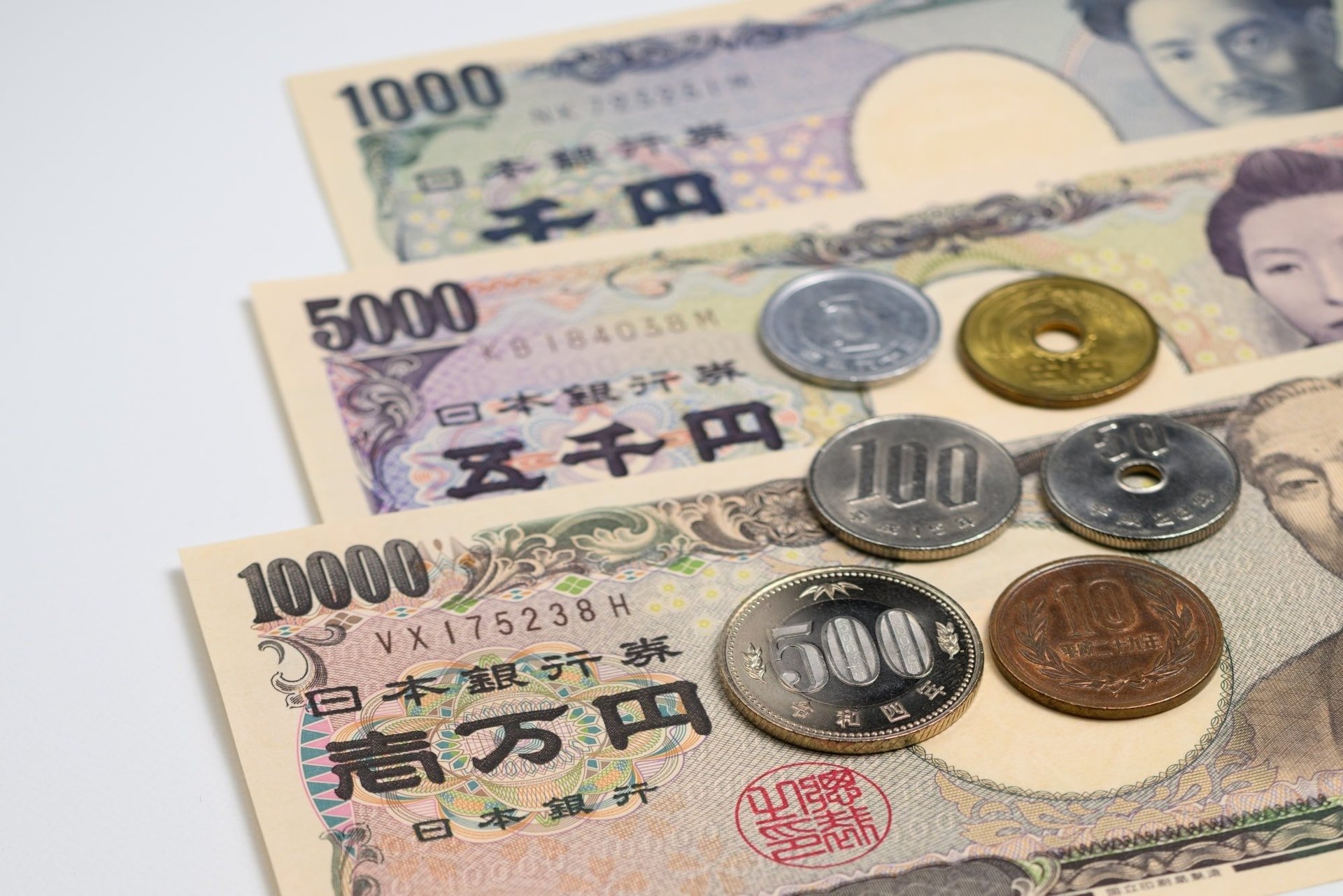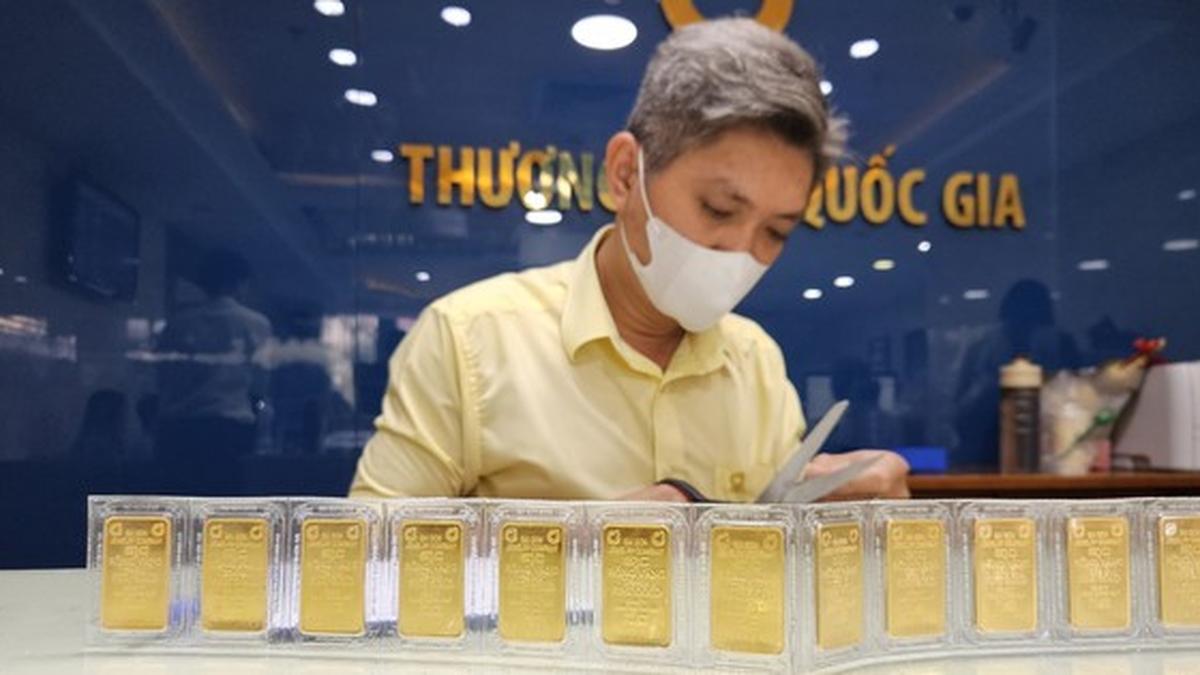Domestic Yen Exchange Rate
Today's Japanese Yen exchange rate surveyed on the morning of April 19, 2025 at banks, specifically as follows:
At Vietcombank , the Vietcombank Japanese Yen exchange rate is 175.83 VND/JPY and the selling rate is 187 VND/JPY.
At Vietinbank , the buying and selling Yen exchange rates are equivalent to 178.10 VND/JPY and 187.80 VND/JPY.
At BIDV bank, the buying and selling rates of Japanese Yen reached 178.50 VND/JPY and 186.81 VND/JPY, respectively.
At Agribank, the Japanese Yen buying and selling rates are 177.71 VND/JPY and 185.88 VND/JPY, respectively.
At Eximbank, the buying and selling rates are 179.19 VND/JPY and 185.36 VND/JPY, respectively.
At Sacombank, the buying and selling rates of Japanese Yen are 179.20 VND/JPY and 186.25 VND/JPY, respectively.
At Techcombank, the buying and selling rates are 175.43 VND/JPY and 188.14 VND/JPY, respectively.
At NCB bank, the Japanese Yen exchange rate is 176.41 VND/JPY for buying and 186.79 VND/JPY for selling.
At HSBC bank, the buying rate of Japanese Yen is 177.27 VND/JPY and the selling rate is 185.09 VND/JPY.
According to the survey, today's Japanese Yen exchange rate at Eximbank is the bank with the highest Japanese Yen buying rate and HSBC is the bank with the lowest Japanese Yen selling rate among the banks.
Black market rate
Today, April 19, 2025, surveying the black market, the Japanese Yen/VND exchange rate was traded at 182.18 VND/JPY for buying and 183.53 VND/JPY for selling.
In Hanoi, the largest currency exchange street in Hanoi that helps you exchange many types of foreign currencies is Ha Trung currency exchange street. At Ha Trung currency exchange street, you can exchange popular foreign currencies on the market today such as USD (US dollar), Euro, Yen (Japanese Yen), Won (Korean Won), ... and many other currencies. Therefore, the Ha Trung Japanese Yen exchange rate is also a keyword that readers are interested in and Quoc Trinh Ha Trung store is an address that is advertised a lot on social networks. However, when exchanging money at these foreign currency streets, you need to comply with the regulations of Vietnamese law.
World Yen Exchange Rate
After the first meeting on tariff negotiations between the US and Japan, the news that the two sides did not discuss the exchange rate issue caused the Yen to temporarily weaken. The Japanese Yen exchange rate rose to 141 JPY/USD at one point, then continued to decline and reached 142.5 JPY/USD, then surpassed 143 JPY/USD as Yen selling and USD buying pressure spread in the market.
Japan’s economic minister, Mr. Akazawa, said the meeting did not discuss exchange rates. However, the market is still worried that the US could pressure Japan to strengthen the yen. Former President Trump has criticized Japan for its weak yen and said the yen should be stronger. Mr. Trump’s attendance at the meeting also added to those concerns.

The exchange rate issue may be discussed further between the Japanese and US Finance Ministers at the G20 meeting taking place from April 22. Currently, the exchange rate of 140 JPY/USD is considered an important level. If the US continues to ask Japan to adjust the Yen, the exchange rate may fall to 130.
Mr. Akazawa also said that the US wants to reach an agreement within 90 days, so the market will continue to closely monitor the moves from both sides.
In the stock market, Japan's Nikkei index rose 457 points (up 1%) to 34,377 points. The yen's temporary halt in appreciation helped stocks like TDK. However, the rally did not last long as many investors took advantage of the situation to sell to take profits. Some stocks like Nitori and Toyota fell slightly.
According to analysts, there is nothing new in this meeting, so investors are still waiting for more specific results before deciding to invest.
Yen exchange rate trend forecast
The Japanese Yen is still considered by international investors as the top safe haven. Over the past two weeks, the Yen, Euro and Swiss Franc have all recorded increases of 5% to 8% against the greenback. With the expectation that the Bank of Japan (BoJ) will continue its interest rate hike path – in the context of rising basic wages at many Japanese companies – helping the Yen maintain a stable foundation.
In addition, the US Federal Reserve (Fed) is facing pressure to cut interest rates due to concerns about a slowdown in the US economy due to tax policy. Accordingly, the interest rate gap between the Fed and the BoJ is gradually narrowing, reducing the appeal of "carry trade" strategies. If this trend continues, the Yen is likely to not only stabilize but also maintain its recovery momentum in the medium term.
Experts say that Japan has a large economy, political stability and good financial market liquidity. Thanks to that, the country's currency has become an attractive safe haven asset.
Source: https://baodaknong.vn/ty-gia-yen-nhat-hom-nay-19-4-dong-yen-suy-yeu-249895.html






















![[Photo] National Assembly Chairman attends the seminar "Building and operating an international financial center and recommendations for Vietnam"](https://vphoto.vietnam.vn/thumb/1200x675/vietnam/resource/IMAGE/2025/7/28/76393436936e457db31ec84433289f72)















































































Comment (0)